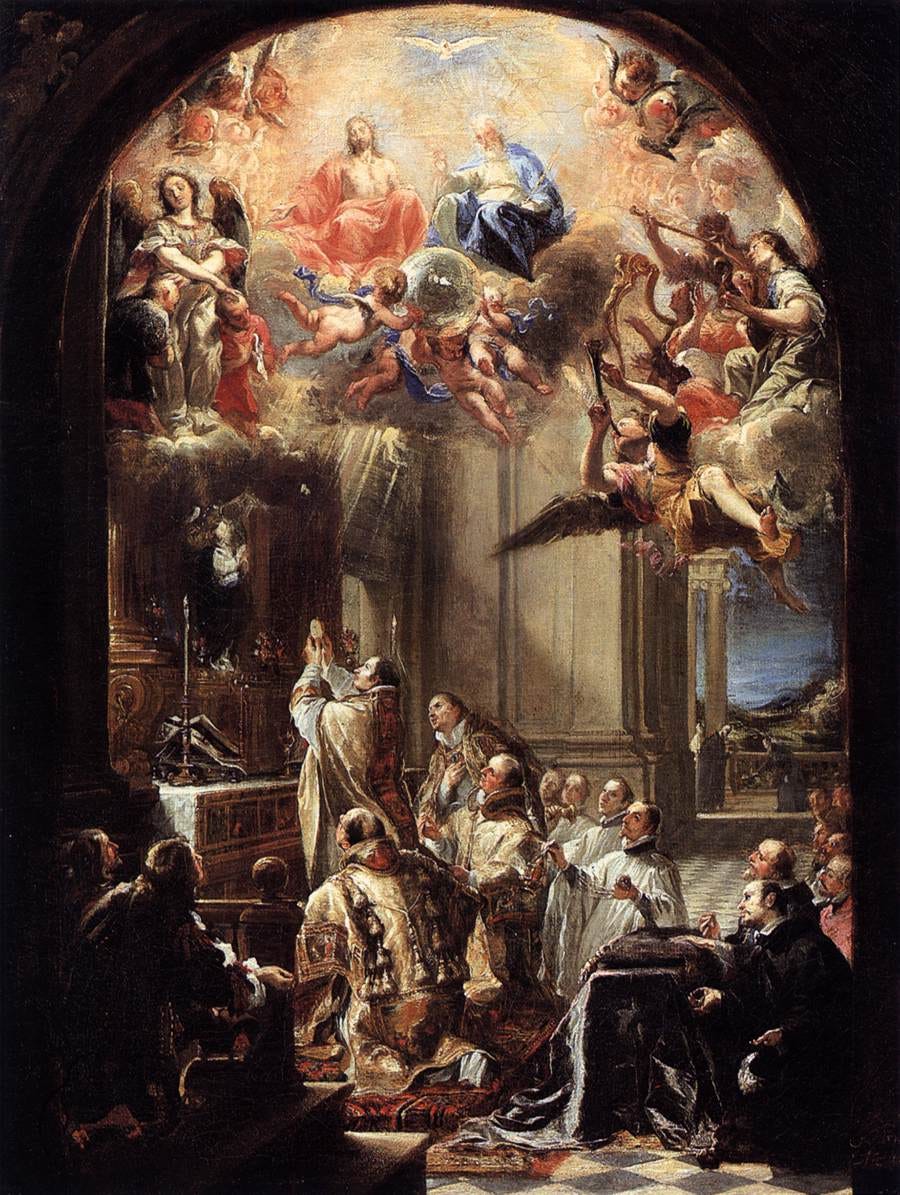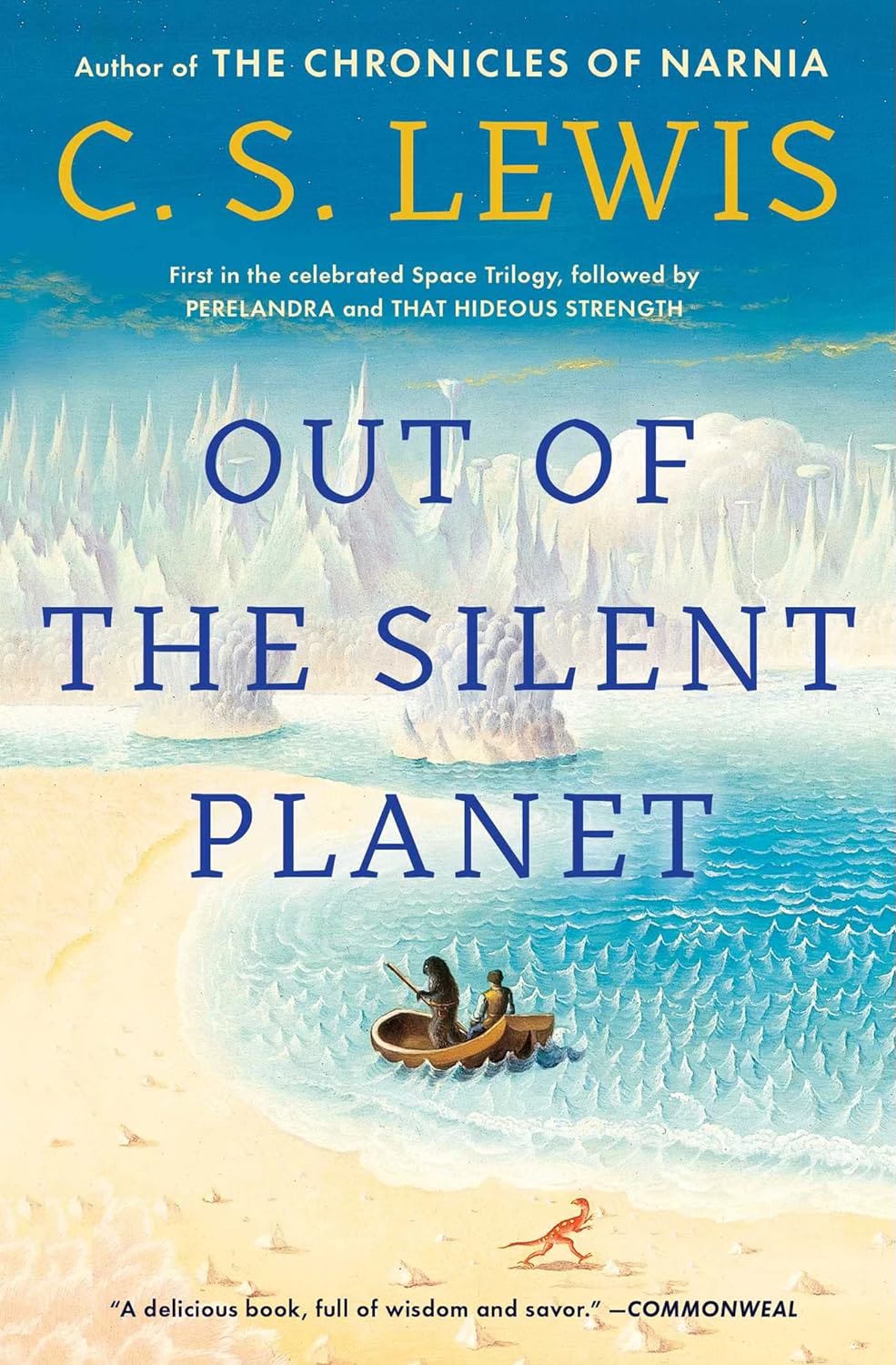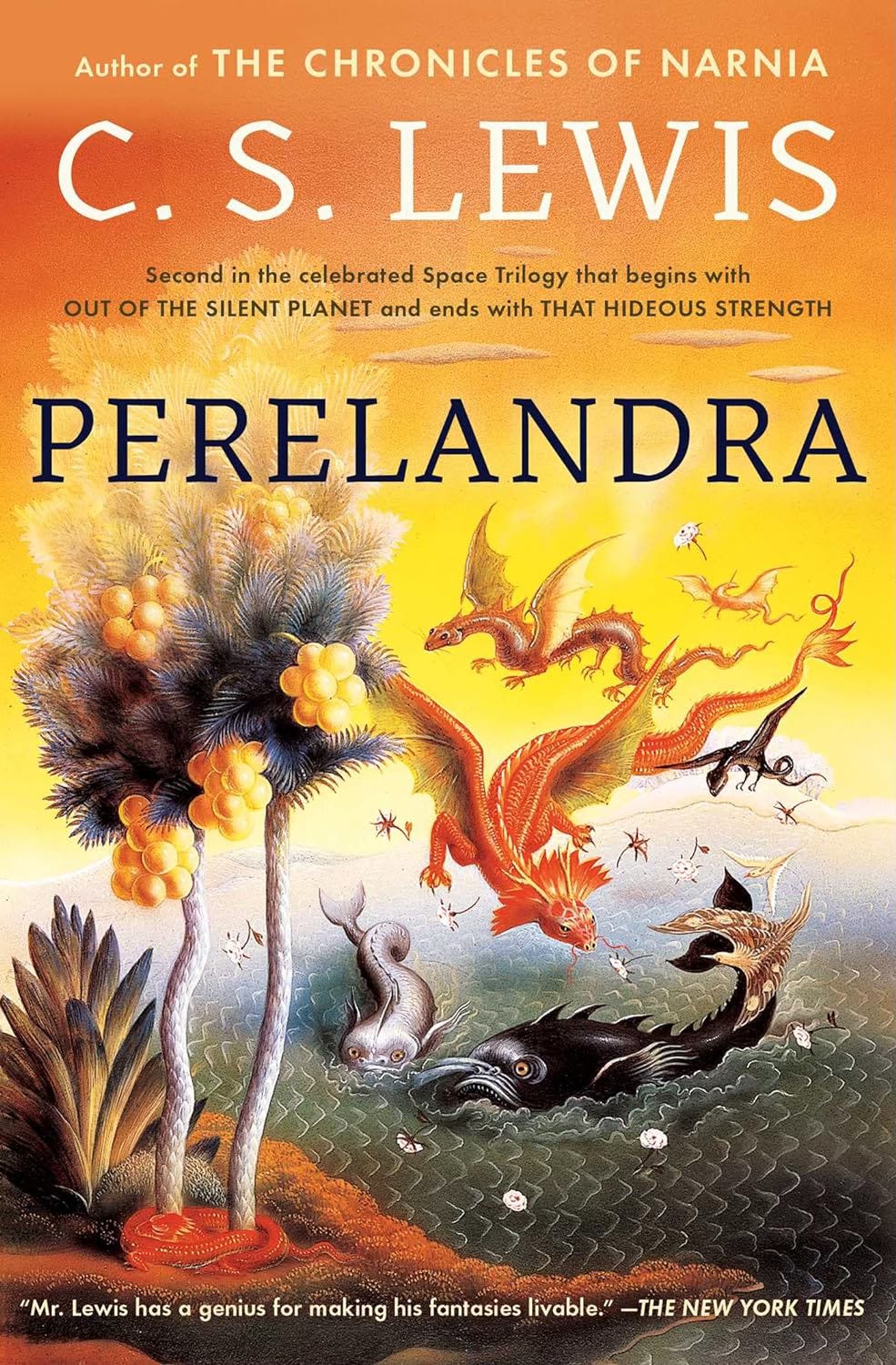Leisure: Antidote to the Busy Murder of Christmas
in which we attempt to suggest how to embrace Mary and help Martha
Welcome to Reading Revisited, a place for friends to enjoy some good old-fashioned book chat while revisiting the truth, beauty, and goodness we’ve found in our favorite books.
Thomas Aquinas aptly calls acedia the sin against the Sabbath—the sin against festivity itself.
-Anthony Esolen, endnote to Inferno 7.121
Happy St. Nicholas day! Welcome to the best time of the year.
Yes, I know— if you, like Elise and I, are trying to live a liturgical calendar inside your home, this is not the Christmas season. This is Advent. A season of preparation. I agree.
Now. How do we do this? How do we prepare our hearts and minds—not to mention our homes and our travels and our gifts— well? How do we embrace the heart of Mary, when Martha has so much to do?1
And what is the “this” we are trying to do? We will suggest, that the “this” we are yearning for is: leisure.
But first, a note: these thoughts build off of a previous essay, Revisiting Lazy Murder (summary in footnote2), in which we became convinced that we must adhere to a Rule of Live…so what does that mean now?
Routines are gone. The Rule of Life is disturbed. We’re supposed to be praying and working (according to our penciled RoL taped onto our bathroom mirror) but instead we’re on Amazon buying gifts for a last-minute White Elephant party for our 2nd-grader on Dec 9th… And we’re re-arranging Sunday plans to accommodate in-coming relatives for a pre-Christmas Christmas. What to do?
How to preserve the heart of Mary when the activity of Martha is needed? How to be post-ghost Scrooge, when every fiber wants to shout: “Humbug! Go away! I’m PREPARING for CHRISTMAS!” (Not a good look…)
Acedia-busyness in some literary Marthas
Before Elise and I attempt any answers, we’d like to keep before us a few images of who we do not want to be. The first comes from Jane Eyre, and describes Jane’s cousin, Eliza Reed:
Eliza spoke little: she had evidently no time to talk. I never saw a busier person than she seemed to be; yet it was difficult to say what she did: or rather, to discover any result of her diligence. She had an alarm to call her up early. I know not how she occupied herself before breakfast, but after that meal she divided her time into regular portions, and each hour had its allotted task….[detailed account of prayer and task routine]…this routine sufficed for her; and nothing annoyed her so much as the occurence of any incident which forced her to vary its clockwork regularity (Charlotte Bronte, Jane Eyre, 298).
This description may as well be describing one of us, during certain days of Christmas past, when we were iron-fistedly clutching at our pre-Christmas Rule of Life, snarling inwardly (& sometimes outwardly), “Don’t touch it! Don’t disturb my plans! They’re my precious...” (Not a good look…) We were not heeding Lewis’ advice to a female correspondent:
Each must do his duty “in the state of life to which God has called him.” Remember that a belief in the virtues of doing for doing’s sake is characteristically feminine, characteristically American, and characteristically modern: so that three veils may divide you from the correct view! There can be an intemperance in work just as in drink. What feels like zeal may be only fidgets or even the flattering of one’s self-importance. As MacDonald says, "In holy things may be unholy greed.” And by doing what “one’s station and its duties” does not demand, one can make oneself less fit for the duties it does demand and so commit some injustice. Just you give Mary a little chance as well as Martha!
(C.S. Lewis, Letters to an American Lady)
And while C.S. Lewis notes that women are particularly prone to "intemperance in work," another of Jane Eyre's cousins, St. John Rivers, is a masculine example of this same fault.
“I trust that when the first flush of vivacity is over, you will look a little higher than domestic endearments and household joys.”
“The best things the world has!” I interrupted.
“No, Jane, no: this world is not the scene of fruition; do not attempt to make it so: nor of rest; do not turn slothful.”
“I mean, on the contrary, to be busy.”
“Jane, I excuse you for the present: two months’ grace I allow you for the full enjoyment of your new position, and for pleasing yourself with this late-found charm of relationship; but then, I hope you will begin to look beyond Moor House and Morton, and sisterly society, and the selfish calm and sensual comfort of civilized affluence. I hope your energies will then once more trouble you with their strength.”
I looked at him with surprise. “St. John,” I said, “I think you are almost wicked to talk so. I am disposed to be as content as a queen, and you try to stir me up to restlessness! To what end?”
“...try to restrain the disproportionate fervour with which you throw yourself into commonplace home pleasures” (Charlotte Bronte, Jane Eyre, 290).
Apologies to St. John, but we fully intend to suggest that we should throw ourselves into “commonplace home pleasures,” even for two months time, and be occupied in the best, and most non-slothful of ways. We will not forget that “domestic endearments and household joys” are an excellent place to spend our “energies” and “strength.”
But before we leave these literary examples of acedia-plagued souls, it is perhaps well to return to the opposite side of acedia (just so we don’t forget that we are, in fact, trying to walk a narrow path here.) In “Revisiting Lazy Murder,” we discussed Dian de Momerie, the wealthy and aristocratic drug addict who “has it all” in Dorothy Sayers’ Murder Must Advertise. On the surface, characters like Dian and Eliza/St. John couldn’t be more different (indeed all parties concerned would want to be considered unalike). However, they suffer from the same peskily-joy-stealing vice. Recall Sayers’ definition of acedia:
The sin which believes in nothing, cares for nothing, seeks to know nothing, interferes with nothing, enjoys nothing, loves nothing, hates nothing, [and] finds purpose in nothing.
(“The other Six Deadly Sins” in Creed or Chaos?)
And as Sayers further notes, acedia can “dissemble itself under cover of a whiffling activity of body.” Such activity is aided and abetted by the other deadly sins who “hasten to provide a cloak for Sloth.” Gluttony “offers [Dian] a whirl of dancing, dining, sports, and dashing very fast from place to place” while Lust provides her with a “round of dreary promiscuity that passes for bodily vigour.”
Yet, “these are all disguises” for the “empty heart and the empty brain and the empty soul” of Dian.
The holidays are an opportunity for genuine richness, but liable to be made into an excuse for all the Scrooge-like strictures of Jane Eyre’s cousins, or all the hedonistic follies of Sayer’s Dian.
Thus, we must keep ourselves from both over-work and misguided-play. For an example of this balance, let us look to Dian’s foil, Lord Peter Wimsey.
Leisure in a literary Mary
“It was Christmas week: we took no settled employment, but spent it in a sort of merry domestic dissipation.”
-Jane Eyre, 495
Like Dian and Eliza, Wimsey is a wealthy aristocrat. He is the second son of the Duke of Denver, which means that Lord Peter has absolutely no right to (or responsibility for) the title and estate that his elder brother alone inherits. Yet, his family’s wealth and social influence grant him the ability to do more or less whatever he wants. The only thing he really can’t do is pick a profession; it simply isn’t done.
In such circumstances, Lord Peter could easily fall into the trap of acedia, as either a lazy, self-indulgent hedonist, or as a busy, thrill-seeking hedonist, like Dian. However, Lord Peter pursues the golden mean of virtue (that narrow path with the two chasms on either hand) balancing fruitful labor with refreshing leisure, thus effectively avoiding acedia.
Rather than Dian’s “whiffling” activity of body, or Eliza’s intemperate and self-important “work,” Lord Peter pursues a useful and other-oriented vocation: detective work. Like the most famous of all detectives, Sherlock Holmes, Lord Peter Wimsey enjoys the “puzzle” element of detective work. Like Holmes, he takes the moral and social questions, which such work entails, seriously. However, unlike Sherlock Holmes, who struggles to find much stimulation or enjoyment in activities outside of his work, Lord Peter does not see leisure as a sort of purgatorial punishment. Quite the opposite. Rather, the discovery of fruitful and meaningful work strengthens Lord Peter to enjoy activities and interests outside of said work in right proportion. He does not need recourse to the drugs of bored acedics like Dian de Momerie, and (arguably) Sherlock Holmes, in between “jobs.”
Educated at Eton and Balliol College Oxford, Lord Peter is a lover of literature, as evidenced by the way his dialogue is littered with literary references. He is an avid collector of rare manuscripts, including works of Dante. He is a skilled piano player, a lover of classical music (particularly Bach) and certainly knows how to enjoy both good food and good drink, though neither to excess (as evidenced by his athletic feats in Murder Must Advertise).
At Oxford, he played cricket, and so enjoys it that he nearly blows his cover in Murder Must Advertise, when he reveals his incredible talent in the aforementioned-sport during an investigation. Clearly, he is not gripping his Rule of Life too tightly.
During the course of investigations, he is able to find moments of leisure and accept leisurely interruptions, whether it’s relishing a ride in his iconic Daimler, or spending time with his niece and nephew while consulting his police officer brother-in-law about an investigation. Indeed, there are times when his love of leisurely activities is what leads him to close the case, as in The Nine Tailors.
Lord Peter is an example of the landed gentry at its best, an example of what the removal of well-educated people from the hamster-wheel of the work-a-day world was meant to create space for. Effectively, Lord Peter is able to make all work leisure.
And this is a good thing.
Let us explain, for it is high time we defined leisure.
Leisure: the antidote to acedia
“Come in! and know me better, man!”
-Ghost of Christmas Present, A Christmas Carol, Charles Dickens
Leisure is not laziness. (That would be acedia.)
In his book, Leisure the Basis of Culture, Josef Pieper defines a man riddled with acedia as a man who “does not want to be as God wants him to be” (44).
Instead, leisure is:
Man’s happy and cheerful affirmation of his own being, his acquiescence in the world and in God—which is to say love. Love that certainly brings a particular freshness and readiness to work along with it, but that no one with the least experience could conceivably confuse with the tense activity of the fanatical “worker” (Pieper, Leisure the Basis of Culture, 45).
“The tense activity of the fanatical worker…” That surely describes the mood in which we have too often conducted our daily duties. (Not a good look…)
Perhaps leisure has always been hard to cultivate, perhaps its part of concupescence, but let’s examine what makes it tricky to practice in today’s world.3
Leisure, from [the point of view of a utilitarian society, which believes all actions should be useful], appears as something wholly fortuitous and strange, without rhyme or reason, and, morally speaking, unseemly: another word for laziness, idleness, sloth.
At the zenith of the Middle Ages, on the contrary, it was held that sloth and restlessness, “liesurelessness”, the incapacity to enjoy leisure, were all closely connected; sloth was held to be the source of restlessness, and the ultimate cause of “work for work’s sake” (Josef Pieper, Leisure the Basis of Culture, 43).
Leisure got a bad name recently.4 Leisure was rebranded. Sitting was christened a sin.
Sloth [acedia] is not the opposite of industry, as late-stage capitalism would have it. Indeed sloth and industry may get along quite well together, as a glance at an assembly line of a harried bureaucrat’s desk may reveal. As Dante presents it, sloth is a lukewarmness of love, and its spiritual haze is opposed not so much to labor as to play and the joy of play.
(Anthony Esolen, footnote to Purgatorio 18).
Leisure is play, and the joy of play. Leisure is love, not lukewarm, but burning.
Who would guess, unless he were expressly told so, that Aquinas regarded acedia as a sin against the third commandment? He was in fact so far from considering idleness as the opposite of the ethos of work that he simply interprets it as an offense against the commandment in which we are called upon to have “the peace of the mind in God” (Pieper, Leisure the Basis of Culture, 45).
Did you catch that? There was a rather good connection made by Pieper just then. Leisure upholds the third commandment. Leisure is an engagement in the “peace of the mind in God,” it is related to the seventh day of creation, to the sabbath, to rest, to recreation, to re-creation, to keeping holy the Lord’s Day.
Not an idle commandment— sabbath rest. It’s one that Moses staked his whole reputation and life upon.
And what is the main purpose of the Lord’s day? Is it to sit? Yes? To remember? Yes, deeply yes. But primarily, what is the purpose for the sabbath? Worship.
But the gods, taking pity on mankind, born to work, laid down the succession of recurring Feasts to restore them from their fatigue, and face them the Muses, and Apollo their leader, and Dionysus, as companions in their Feasts, so that nourishing themselves in festive companionship with the gods, they should again stand upright and erect.
-Plato
For what purpose did Moses demand that the Israelites be set free from endless work in Egypt? Was it to be able to do what they wished? To be their own masters?
No, nothing so trivial as that.
It was to worship.
And you shall say to him, “Let my people go, that they may serve me.”
Exodus 7:16

Compare the movement in the above image of Moses receiving the written tablets of the law, with the movement in the following two paintings.5
Worship. A state of active stillness. A placing of oneself in God’s presence. A shout of praise and thanksgiving. A striking of one’s breast with, “Mea Culpa.” A standing, kneeling, walking, moving action in which one acknowledges that I am not all that is, that I AM is all that is. Worship. Where we set aside our to-do list, and do something that can never quite be belittled into a line on a to-do list. Worship. An action that takes us out of Time, while firmly grounding us in this very moment. Worship. Something that we did not create, but which we were made for. Something which re-creates us.
Culture depends for its very existence on leisure, and leisure, in its turn, is not possible unless it has a durable and consequently living link with the cultus6, with divine worship (Pieper, Leisure the Basis of Culture, 15).
Leisure is admitting that there is more here than what is here. That this world is not everything. And therefore, it is not right and just for man to use all his time on tasks which are merely material. There is a part of Man that is other. That is immaterial.
In the former essay, we included a passage describing those souls in Inferno who frittered life away through acedia, and are now wind-whipped around for eternity. Compare that former scene to this passage from Purgatorio, where the souls who mourned their lack of leisure in life, are now being purged of acedia by racing to the high altar. Notice that Dante compares their race to a festive celebration of Bacchus, the god of wine. This living of leisure, my friends, can and should be quite joyous indeed:
And as the Theban rivers used to see
a rage of dust along their banks at night
when revelers called on Bacchus in their need,
So did they swing their paces like a scythe,
those souls hard-spurred, as far as I could tell,
galloping for good will and righteous love.
Straightaway past us on the ring they swept,
for that great throng of spirits ever raced,
and the front-runners shouted as they wept,
"Mary ran to the hill country in haste!”
…
"Come on, come on, don’t let time slip away
for lukewarm love!” cried those who ran nearby.
"Zeal in well-doing makes grace green again!”
…
"So full of ardent will to move are we,
we cannot rest—pardon us, then, and don’t
mistake our duty for discourtesy.”
(Dante, Purgatorio 18. 91-100, 103-105, 115-117)
How to Live Leisure
Concerning music a doubt may be raised-in our own day most men cultivate it for the sake of pleasure, but originally it was included in education, because nature herself, as has often been said, requires that we should be able, not only to work well, but to use leisure well; for, as I must repeat once and again, the first principle of all action is leisure. Both are required, but leisure is better than occupation; and therefore the question must be asked in good earnest, what ought we to do when at leisure?....at suitable times we should introduce amusements, and they should be our medicines, for the emotion they create in the soul is a relaxation, and from the pleasure we obtain rest. Leisure of itself gives pleasure and happiness and enjoyment of life, which are experienced, not by the busy man, but by those who have leisure.
-Aristotle, Politics Book VIII
So my friends, have fun! Throw yourself into this season of preparation with prayer and awe for the God-made-Man. And also, remember that that God who became Man became a baby, a giggling, hungry, wiggly-toed bundle of joy.
Go worship, and bring the heart of worship into your home by remembering that “all work and no play makes Jack a dull boy.”
Go be merry.
Three thoughts:
Make space for free time, then allow activities to enter into this space, always seeking to maintain an interior state of peace and joy.
Possible affirmation: “The goal isn’t to make cookies [insert any other activity here], the goal is peace and joy.”
Think of those activities which genuinely give you and yours a sense of rest/peace/relaxation, and make/plan time for those activities
These can be “active” things (like hosting, hiking, Christmas parades, crafts, listening to quality music, reading, etc.)
This may mean crossing-off merely “okay” opportunities which would create busyness and harried hurriedness. Ask yourself: “Is this activity deliberately chosen or is it merely a product of restless, dissatisfaction, or ‘trying to do all the things?’” (Lord Peter Wimsey as crime solver and book collector is as “active” as Dian but he is not busy or unhappy the way Dian is. Be like Peter.)
Cultivate times for true pleasures which are oriented towards giving us rest (mental and emotional and not merely physical) and drawing us closer to God and neighbor. 7
Two thoughts from others:
Read this:
And read this:
Go in Peace & Joy to spread Peace & Joy
“The heart of religion is worship.
The heart of worship is sacrifice.”
-Fr. Mike Schmitz, Glorifying the Lord with Your Life homily
Acedia has two opposing sides: lackluster dreary-weariness like the pout pout fish, and harried, frenzied, strict-fisted busyness like pre-ghost Scrooge.
But Leisure, my friends, has a deeply unified dual nature, like our Lord Himself. It is a state of deeply abiding rest, and a shout of exuberant joy. It is the willingness to submit oneself (body and soul) to the liturgical forms of the rite of worship, and the spontaneous acceptance of a game of tag with one’s nieces and nephews. (An excellent look…)
It is allowing oneself to be silly, and then making oneself be solemn.
The customers were all so hurried and so eager in the hopeful promise of the day, that they tumbled up against each other at the door, crashing their wicker baskets wildly, and left their purchases upon the counter, and came running back to fetch them, and committed hundreds of the like mistakes, in the best humor possible…But soon the steeples called good people all to church and chapel, and away they came, flocking through the streets in their best clothes, and with their gayest faces. (Charles Dickens, A Christmas Carol, 65).
May we go forth to go to church. And then, understanding that most of our lives are spent outside of worship proper, that is, outside of the church sanctuary and in our homes, may we bring the adoration of the Christ Child into our hearts, enthrone Him there, and always find times to recur to Him, even in the midst of “much serving.”
Let us hear Christ’s words. Let us not be “anxious and troubled,” but instead as we bring worship with us, may we also bring its heart: sacrifice.
There are times when we do not want to bake anymore, or talk anymore, or join in a toast anymore. But these are but little sacrifices which we can make on the altar of love. These are but little, mighty gifts, which we can bring to the stable.
May we, then, go in peace to give thanks and to sacrifice always with a spirit of freely-given happiness.
This Christmas, let us love the inexplainable. Let us be a child again. Let us revel in the wonder of things unknown. Let us do what is unnecessary and has no purpose. Let us bring calm in the midst of busyness and make it joy. These things, surely, are mini-metanoia moments, and therefore, surely, are true Adventian preparations.
Let us not remove the veil this Christmas. But instead, let us leave untouched and unreasoned-out what is great and glorious and good and beautiful to behold. Let us be filled with joy over the greatness of little things.
Go my friends, to sit and to be busy. To rest and to be merry.
For the joy of the Lord is a gift within, and an awe for all things without.
Be still and know that I am God.
Psalm 46:10
And…
“There is nothing in the world so irresistibly contagious as laughter and good-humor.”
-Charles Dickens, A Christmas Carol, 81
Until next time, keep revisiting the good books that enrich your life and nourish your soul.
In Case You Missed It:
What We’re Reading Now:
December
A Christmas Carol by Charles Dickens
January
Othello by William Shakespeare
February
Out of the Silent Planet AND Perelandra by C.S. Lewis
A Few Reminders:
If you are wanting to get in on the in person or virtual community please contact us! If you have started a group and we don’t know about it, please let us know so we can get you some resources to help you out!
We have turned on paid subscriptions which will allow you to support the work we are doing here as well as receive Read Along Guide PDFs each month, voice recordings of the Read Along Guides and Essays, and we are working on (printable) bookmarks for each book.
If you would like to make a small contribution to the work we’re doing here at Reading Revisited, we invite you to do so with the Buy (Us) a Coffee button below. We so appreciate your support!
*As always, some of the links are affiliate links. If you don’t have the books yet and are planning to buy them, we appreciate you using the links. The few cents earned with each purchase you make after clicking links (at no extra cost to you) goes toward the time and effort it takes to keep Reading Revisited running and we appreciate it!
Luke 10:38-42: Now as they went on their way, he entered a village; and a woman named Martha received him into her house. And she had a sister called Mary, who sat at the Lord’s feet and listened to his teaching. But Martha was distracted with much serving; and she went to him and said, “Lord, do you not care that my sister has left me to serve alone? Tell her then to help me.” But the Lord answered her, “Martha, Martha, you are anxious and troubled about many things; one thing is needful. Mary has chosen the good portion, which shall not be taken away from her.”
If you didn’t read Revisiting Lazy Murder, here’s a meager summary: Acedia is a common (though hidden and often unlabeled) vice of our everyday living that tempts one to slothful avoidance of work AND Martha-esque over-busyness. There are five ways to combat it: Cry; Pray & work; Contradiction; Meditate on Death; Persevere in your Rule of Life. (Fully expanded in the aforementioned essay -do go check those out!) The fifth tool, perseverance in the Rule of Life (which is a plan for one’s daily hours, which considers one’s vocation, and therefore the rightful distribution of one’s time between prayer, chores, education, and, yes, leisure) is the main topic of our essay today.
Someone should explore the the relative ability of cultures across time to engage in leisure.
I intentionally avoided any more specific term here. Modernity (I’m also avoiding pinning down this term with exact dates) certainly took its toll on leisure. Leisure certainly gets destroyed by communist and socialist states. But it doesn’t fair too well in consumerist America either. These societies are not the same. And I don’t want to suggest that I think one way of living is just as fraught as another. I don’t think that. I love being American. I do not want to live in Russia. See the enormous essay these thoughts lead us down? Hence why I’m leaving these half-baked thoughts here, in a footnote.
In all three there is a movement of worship towards the Word. With Moses, it is the Word given as the Law in the 10 Commandments. With the painting of the Nativity, it is the Word given as an incarnate child. With the painting of the Mass, it is the Word given as the Bread of Life. A whole essay is here. I’ll leave you to enjoy the beauty.
The word “cult” in English is used exclusively, or almost exclusively, in a derivative sense. But here it is used, along with worship, in its primary sense.
With a goal that our leisure should refresh us and help us to go back to the day to day/less ‘exciting’/more mundane parts of our duties with new hearts to love, new eyes to see, and new perspective to see what it is all oriented towards/about. Slogginess and busyness are both ways addressing the God-shaped hole in our heart/ways of ignoring/dulling/burying the restlessness of our hearts. Whereas, leisure creates a posture of humility-receiving truth/goodness/beauty as an undeserved/unmerited/unworked for gift from God.


















Great post. I have always struggled with leisure and Advent is a great time to learn when it is most fitting to enjoy oneself and find God’s presence in the most common activities 🎄
'Worship. A state of active stillness. A placing of oneself in God’s presence. A shout of praise and thanksgiving. A striking of one’s breast with, “Mea Culpa.” A standing, kneeling, walking, moving action in which one acknowledges that I am not all that is, that I AM is all that is. Worship. Where we set aside our to-do list, and do something that can never quite be belittled into a line on a to-do list. Worship. An action that takes us out of Time, while firmly grounding us in this very moment. Worship. Something that we did not create, but which we were made for. Something which re-creates us.'
THIS. IS. SO. GOOD. Thank you for helping to contextualize leisure, ladies - this discussion is much-needed!